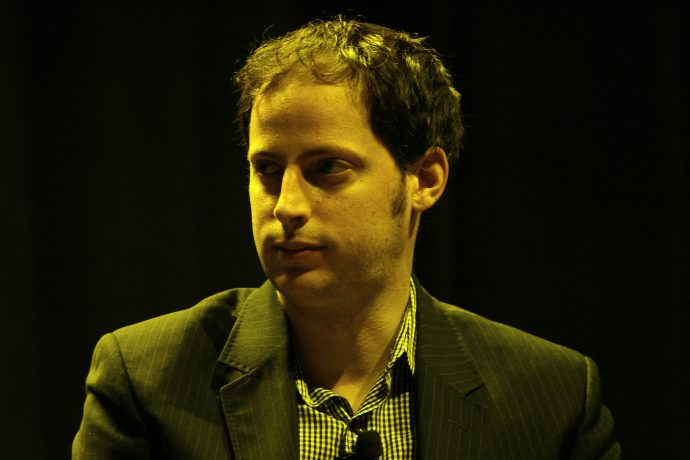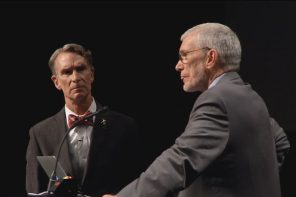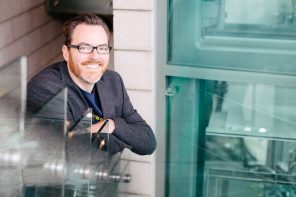Throughout the election season, Nate Silver’s FiveThirtyEight site estimates each candidate’s odds of winning the presidency. These projections are precise to the tenth of a percentage point. They are updated multiple times per day. And unless you’re a gambler, they are pretty much useless.
Yes, it can be nice to have a sense of who will win in November. But there’s no way that a projection this precise will actually change the future or reliably inform your life choices. In just a few weeks, it will be supplanted by much better data, anyway.
Still, there’s something seductive about this genre. You can check the numbers again and again (Is Hillary at 88.5% now? Wait, what, she’s down to 86.9%?!). They model a distinct kind of expertise and certainty. Other outlets, including the New York Times and Daily Kos, have launched similar forecasts.
What’s the appeal of quantifying the future? What should we make of these technological oracles? RD associate editor Michael Schulson and Alan Levinovitz, an RD contributor and a professor of Chinese philosophy and religion at James Madison University, got together online to chat about fate, uncanniness, and prophecy as spectator sport.
Michael Schulson: I’ll confess: I check Nate Silver’s odds obsessively. Am I alone in this compulsion?
Alan Levinovitz: No. I check the Vegas odds.
MHS: Vegas! Are the bookmakers better than Silver?
AL: No. At least I don’t think so. But I don’t like the idea of Nate Silver (or his team) as some kind of oracular power. I prefer the idea of crowdsourced odds, which is what I take Vegas to be. If there’s an oracle, I’d prefer it to be democratic.
MHS: So Silver is the plutocrat of oracles. We’re both checking the odds, though, even if I’m apparently a lackey to the dictator.
AL: There’s a universal appeal, even if the flavor is different. It’s like praying to different gods. Maybe you light candles for Shiva, and I go to mass. Either way, there’s a fundamental relationship that’s important to both of us.
(I don’t go to mass—I’m a Levinovitz.)
MHS: There is something ritualistic about the checking. And the appeal seems universal, doesn’t it? Prediction is great business.
AL: Especially when something seems out of whack, like this election. I don’t usually check odds, but with the ascendance of Trump, I felt like I needed to assert some control over a political sphere that was entirely beyond my understanding.
MHS: Exactly! You can’t actually control the flow of history here, but you can have the illusion of knowing, to the tenth of a percentage point, the possible direction in which it’s headed. Even if the numbers are actually in flux and probably don’t mean much for at least another few weeks.
AL: You’ve put your finger on something really interesting—the practical uselessness of predictive knowledge this far out. Why check Nate Silver (or Vegas) if you are absolutely certain that three months later the odds will be much more representative of reality?
For me it’s at least partly the sense of tapping into an occult power. To see the future is hubris, the realm of prophets and prophecy. It’s always been dangerous, it’s always come at a cost. And now it’s a spectator sport!
MHS: It is fun to watch. Nate Silver versus the New York Times versus Las Vegas. Who will do better?!
AL: At one point, back before the reality of what it would mean had set in, I actually found myself rooting for Trump a little, just because it would melt the wings of these prophet-Icaruses. Like See! Don’t try that shit, it’s unholy and this is what you get.
MHS: The collapse of the pundit-class has definitely been a theme of this election. But doesn’t that scare you a little? Or maybe you’re just more of a rebellious spirit than I am.
AL: And also scared that people would have that kind of power. There’s a sense that the new algorithms, in an era of big data, are omniscient. They beat us at chess, at Go. With prediction sites, they can see into the future. Part of the appeal with Silver’s site, I think, is that he lays bare the cogs of the algorithm.
To me, though, there’s something unappetizing about it. It reminds me of this story where Target started sending ads for baby stuff to this house. The dad there was like, what’s going on? Turns out that his daughter was pregnant, and Target has an algorithm that tracks shifts in purchases that indicate pregnancy. The algorithm knew before her father did. That’s creepy…
MHS: It’s the algorithmic-uncanny—that sense that there’s an actual truth out there, encoded in numbers and data trails, that few of us can see or understand, and that contains a realer picture of our lives than even we know. And those select people who can tap that hidden reality have a special aura of power.
AL: Yes! Although for some reason I have no problem with people who tap into the hidden reality of physics to make magical machines like the one I’m typing on. It’s as if there are certain kinds of knowledge that are ours to acquire, and other knowledge—as you said, the hidden reality of our lives, or, in the case of prophecy, knowledge of the future—that’s just better if it’s out-of-bounds.
MHS: Well, there’s something about this knowledge that feels disempowering. The course of the world is already written, and we are just following it. It’s a new kind of tragic stance, almost.
AL: And if it is already written, best to be literate, right?
MHS: Well, when do you prefer not to know?
AL: There it is: the key question. It gets even more complicated when it comes to odds. For instance, I think I’d like to know if I had a 100% chance of getting Alzheimer’s. But a 20% chance? There’s a question of how useful predictions of that sort really are.
MHS: Too much knowledge, or incomplete knowledge, can be dangerous. It’s the reason that medical associations are recommending fewer prostate screenings, even though every once in a while they save lives. The statement “you have a 2% chance of dying” can lead people to do very, very dangerous things.
AL: Maybe that’s why prediction sites like Nate Silver’s are so appealing. You get to tap into incomplete knowledge of the future that doesn’t lead you to do dangerous things. Play with fire, but with gloves on.
MHS: Right—unless I decide to apply for a Canadian passport, there’s really no way that this knowledge will have a material effect on my actions, right?
Also, I have to admit, the less the numbers agree with what I want to hear, the less likely I am to trust them.
AL: It’s funny, here again I feel a little different from you. I’m much more excited when prediction sites confirm that what’s going to happen is counterintuitive, whether or not the prediction is one I find appealing. So it was always exciting for me to see Trump with good odds. “My god! Everything we thought is actually wrong!” In a way, I liked seeing the intuitive predictive powers of the masses—and my own—being second-guessed. There’s a paradox there, I know…
MHS: But also a thrill! Maybe it’s the difference between going to a Ouija board looking for a surreal and spooky jolt, versus going to a Ouija board to confirm something you want to be true, or to clarify and intensify your emotions.
AL: I like the former much more. In fact, I have a pair of bone dice that I carry with me fairly regularly. I use them to make decisions. The idea that I can force my fate to be purely based on chance—not some previously determined algorithm—really is thrilling. It’s strange, though. I give up one kind of freedom in order to have another.
MHS: You mean that you trade the freedom to choose for the freedom of a world that feels unconstrained by predetermined trajectories?
AL: Precisely. Which, bizarrely, means that free will is actually more constrained!
MHS: Well, that’s kind of the ethic behind big data, right? That, at least in aggregate, decisions that feel like free choice actually follow very clear and pre-determined patterns, and these patterns can be scried with the right crystal ball.
AL: Yes. It’s only the illusion of free will. Which brings us back to Trump and the prediction sites. There’s something less threatening—and maybe more practically achievable—about predicting what masses of humans will do in one constrained area, than predicting what will happen in a single individual’s romantic life, say.
MHS: Do you think the function of something like FiveThirtyEight is really different from that of prophetic or oracular advice long ago?
AL: I do think it’s different. In ancient China, which I’m most familiar with, oracular practice was either (1) about confirming what the emperor wanted to do, or (2) finding out what you were supposed to do in your own life. Neither of these is the function of the prediction websites. So it really is a new form of oracle—hard to explain, too, since there seems to be no real practical value. My own inclination is that it really is prophecy as sport.
MHS: I do think there’s some emotional dimension to it, though, alongside the entertainment, if only in the way that it fills this void with the illusion of mastery and control.
AL: Yes—mastery and control of knowledge, just like sports showcase mastery and control of the human body.
MHS: So Nate Silver is like the Michael Phelps of nerds?
AL: We’ll see how many medals Silver wins in this next prediction Olympics.
***
Also on The Cubit: Lying about religion, and other problems with polling
Follow The Cubit, RD’s religion and science portal, @TheCubit





